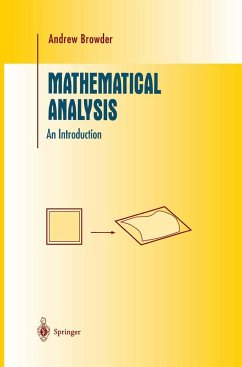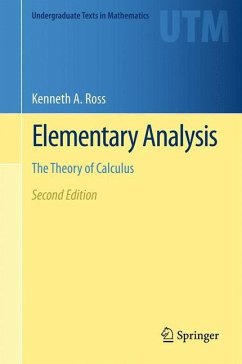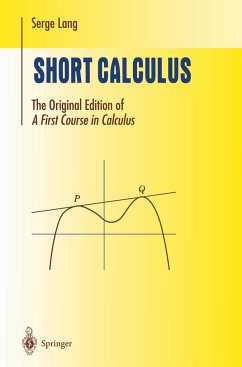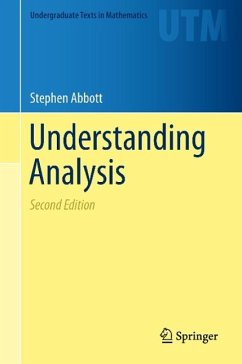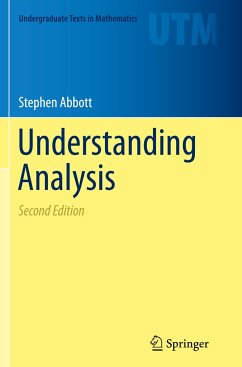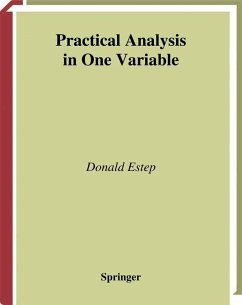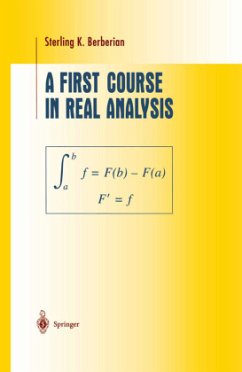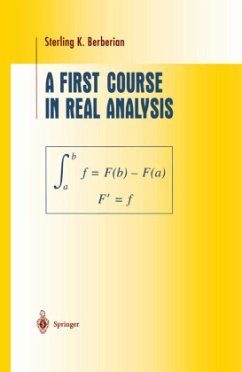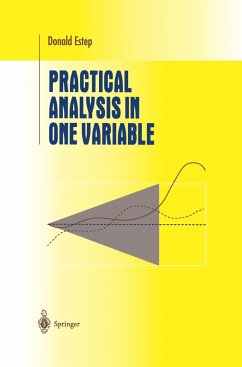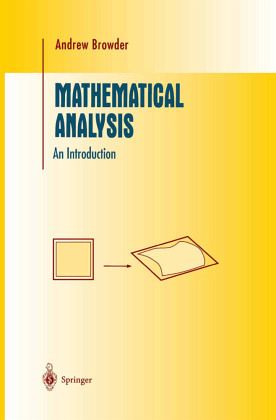
Mathematical Analysis
An Introduction
Versandkostenfrei!
Versandfertig in 1-2 Wochen
38,99 €
inkl. MwSt.
Weitere Ausgaben:

PAYBACK Punkte
19 °P sammeln!
This is a textbook suitable for a year-long course in analysis at the ad vanced undergraduate or possibly beginning-graduate level. It is intended for students with a strong background in calculus and linear algebra, and a strong motivation to learn mathematics for its own sake. At this stage of their education, such students are generally given a course in abstract algebra, and a course in analysis, which give the fundamentals of these two areas, as mathematicians today conceive them. Mathematics is now a subject splintered into many specialties and sub specialties, but most of it can be plac...
This is a textbook suitable for a year-long course in analysis at the ad vanced undergraduate or possibly beginning-graduate level. It is intended for students with a strong background in calculus and linear algebra, and a strong motivation to learn mathematics for its own sake. At this stage of their education, such students are generally given a course in abstract algebra, and a course in analysis, which give the fundamentals of these two areas, as mathematicians today conceive them. Mathematics is now a subject splintered into many specialties and sub specialties, but most of it can be placed roughly into three categories: al gebra, geometry, and analysis. In fact, almost all mathematics done today is a mixture of algebra, geometry and analysis, and some of the most in teresting results are obtained by the application of analysis to algebra, say, or geometry to analysis, in a fresh and surprising way. What then do these categories signify? Algebra is the mathematics that arises from the ancient experiences of addition and multiplication of whole numbers; it deals with the finite and discrete. Geometry is the mathematics that grows out of spatial experience; it is concerned with shape and form, and with measur ing, where algebra deals with counting.



